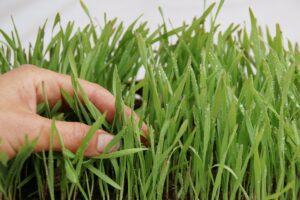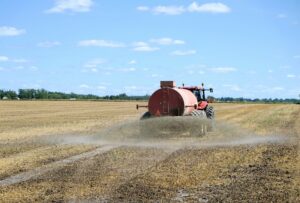In the farming world, it’s a hot-bed issue: organically grown produce versus conventionally grown (ie. with some outside assistance).
The same decision is one that many a backyard gardener faces. Do you try to go au naturale, or do you stick with the conventional chemical help that was built for the purpose?
The things that define gardening as “conventional” or “organic” revolve around the approaches you take to weed control, pest control and fertilisation. Beyond that, not much changes in the way you go about your gardening.
So let’s dissect the methods involved in both, and hopefully in your own backyard you can apply those you see fit.
Organic Gardening
Organic gardening does away with any chemicals, relying solely on natural methods and a bit of elbow grease to keep your garden looking prim and proper.
Pros
It goes without saying, but organic gardening is super eco-friendly. That means that your soil should stay healthy, your neighbours won’t be complaining about mis-sprayed chemicals, and there is no concern about what is being flushed away in the stormwater drains. Things like organic fertilisers work to build you soil up to a healthy state, whereas chemical fertilisers generally give an instant but temporary hit of nutrients.
It is one of those hotbed issues mentioned at the off, but more and more studies are finding that organically grown produce provides better nutrition than the conventionally grown counterpart. One study showed the levels of Vitamin C, Magnesium and Iron were all up by 20+ percent.
The other main positive to organic gardening is the money you save. Not paying for pesticides and insecticides can put a lot of money back in the coffers, and the home-made organic weed killer variants are usually made of very basic household items that cost tuppence. You’ve also got the joy of chewing on whatever you’ve grown in the backyard instead of buying it from a store!
Cons
The downside of plying the organic gardening trade is that you have to put in a lot more effort. Being unreliant on chemicals to do the work can mean a few more hours in the field. Things like crop rotation, companion planting, composting and weeding all take time, but for those committed enough it can result in a tasty and healthy yield.
You will also probably experience lower yields. Composting is a slow release way of fertilising, so there is no way to give your plants a kick along when growing season hits. Without a hardcore pesticide you may also see a decent percentage fall to bugs.
Conventional Gardening
Conventional gardening simply allows the use of synthetic and chemical help to maximise your plants’ potential to thrive, and control the growing environment.
Pros
Compared to organic farming, conventional involves far less toil. You can be confident that a strong pesticide will deal with any invaders, and if your plants are looking a little down, you can give them an instant boost with a good synthetic fertiliser.
The increase in yield size is also a hard pro to pass up. By giving your plants a dose of fertiliser, you’re providing them with a powerhouse feed that will see them fulfil their potential. Doing so at the right times will give you a yield that far outweighs anything that you could achieve naturally.
Cons
You need to be very environmentally conscious if you decide to use chemical assistance. There can be severe environmental impacts if they go where they’re not intended, like contaminating water supplies and getting animals sick, and you also run the danger of making plants lazy – expectant of bursts of fertiliser and weakened because of it.
The other main argument against non-organic crops is the potential health risks. While the actual produce is fine, there is always a chance of pesticide exposure, which can lead to a host of medical problems.
It’s important to note that there is no reason to go completely one way or the other when it comes to organic versus conventional. Taking methods from both sides will provide a balanced garden that you can enjoy for years to come.



